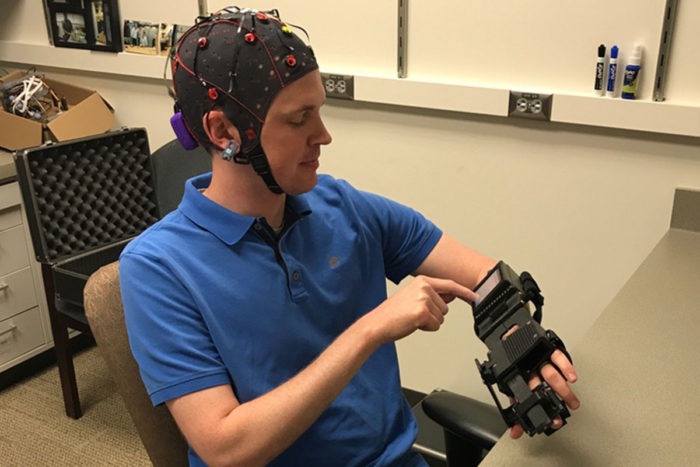Ipsihand, developed by Eric Leuthardt and Washington University colleagues, is a brain controlled glove that helps reroute hand control to an undamaged part of the brain. The system uses a glove or brace on the hand, an EEG cap, and an amplifier.
One’s hands are controlled by the opposite side of the brain. If one hemisphere is damaged, it is difficult to control the other hand.
According to Leuthard, the idea of Ipsihand is that if one can “couple those motor signals that are associated with moving the same-sided limb with the actual movements of the hand, new connections will be made in your brain that allow the uninjured areas of your brain to take over control of the paralyzed hand.”
Ipsihand’s cap detects intention signals to open or close the hand, then the computer amplifies them. The brace then opens or closes in a pincer-like grip with the hand inside, bending the fingers and thumb to meet.
Join ApplySci at Wearable Tech + Digital Health + NeuroTech Boston on September 19, 2017 at the MIT Media Lab – featuring Joi Ito – Ed Boyden – Roz Picard – George Church – Nathan Intrator – Tom Insel – John Rogers – Jamshid Ghajar – Phillip Alvelda – Michael Weintraub – Nancy Brown – Steve Kraus – Bill Geary
